Are you an emotionally intelligent person?
Emotional intelligence is one of the essential soft skills in life that’s incredibly important to personal and professional success but often goes overlooked and undiscussed.
In his new book Promote Yourself: The New Rules for Career Success, author Dan Schawbel talks about emotional intelligence and why it’s so critical to thriving in life. It’s probably one of the best books I’ve read this spring and it made me think about what emotional intelligence means to me and how I see this portrayed in everyday life.
Here’s how to tell if you’re an emotionally intelligent person
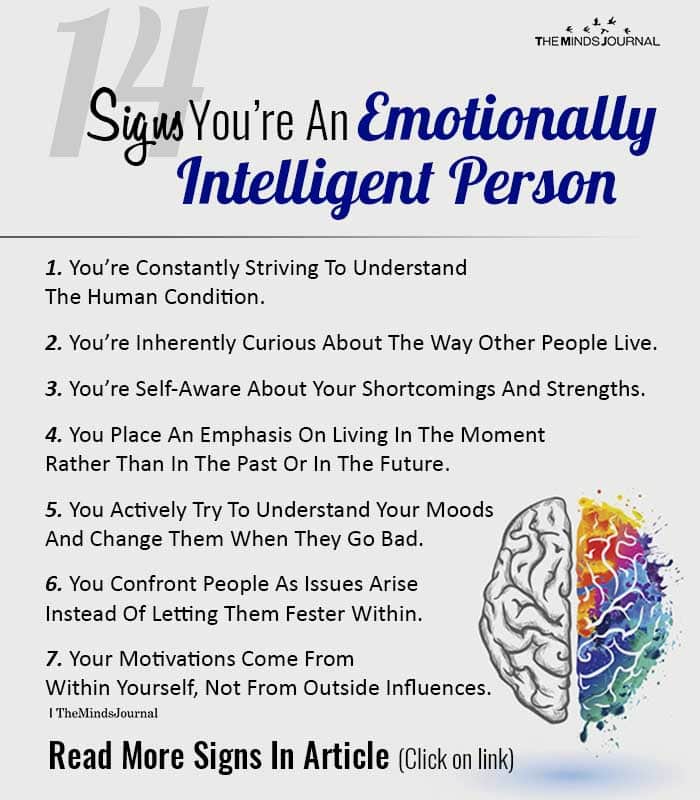
1. You’re Constantly Striving To Understand The Human Condition.
You notice everything – the way someone hesitates before they speak, the way their eyes light up when they see someone they love. You often notice all the things other people seem to miss and you seek understanding for the logic and motivation behind how people behave. You want to understand the human condition from every angle because it helps give you insight and perspective on your own life.
2. You’re Inherently Curious About The Way Other People Live.
You love talking to people from varying cultures and backgrounds because you love learning about how other people live and what makes them tick. You enjoy seemingly random interactions with strangers because that’s where you can often learn the most about other people.
Related: What You See First In This Image Reveals How Emotionally Intelligent You Are
3. You’re Self-Aware About Your Shortcomings And Strengths.
You know the things about yourself that make you not such an ideal person and you’re also aware of the things that make you really great. You know you have a bad habit of procrastinating on projects until the last minute or maybe you know you can be a bad communicator at times, but because you’re aware of these things you actively try to work on them when they come up. You also know what makes you excel in life and you’re always looking for ways to improve on those traits.
4. You Place An Emphasis On Living In The Moment Rather Than In The Past Or In The Future.
You don’t believe living in the past or hoping for the future has any value here, in the now. You would rather experience what’s currently happening as deeply and fully as you can instead of reliving the memories of yesterday or the stories of promise for tomorrow. You have accepted your past for what it is and know you can no longer go back, just as you understand your future is merely a dream you like to live in to give you hope but have yet to actually experience.
5. You Actively Try To Understand Your Moods And Change Them When They Go Bad.
When you get angry, sad or jealous about something you have a self-awareness about it. You experience your emotions as they’re happening with the perspective of trying to understand why exactly you’re feeling this way. You understand emotions are the way your body processes your thoughts and because of this, you attempt to alter your thoughts before spiraling emotionally out of control.
6. You Confront People As Issues Arise Instead Of Letting Them Fester Within.
When an issue comes up between you and another person you would rather deal with it right away than not saying anything at all and letting it create residual problems between you.
Related: How Emotionally Intelligent People Handle Toxic People
7. Your Motivations Come From Within Yourself, Not From Outside Influences.
You live for yourself and the motivations within. You listen to what people say – your peers, friends, parents, people in your industry – but ultimately, you’re going to seek out a life and achievements based on what drives you deep within yourself.
8. You’re Always Working On Personal Development.
You feel restless when life becomes stagnant so when you’ve hit a lull you begin to think about how to get out of it. You start considering your interests, job, friends, relationships, and how you could do things differently to improve upon these areas.
Do you want to be an emotionally intelligent person or want to improve your emotional intelligence? Here is a video on managing the art of emotions:
9. You Genuinely Enjoy Listening To Other People And Helping Them With Their Problems.
You have the ability to make other people feel calm and accepted in your presence. When they’re around you they feel like they can say anything and you aren’t going to judge them for what they’ve done but instead, you’ll actually listen and give constructive feedback. It’s not just one way for you though. You genuinely enjoy connecting with people, whether it’s your friends or family, or random people that talk to you, and listening to what’s going on in their life.
10. You Have An Empathetic Nature For Everyone.
When people talk to you about the struggles they’re currently experiencing, you can often feel and understand their pain, even if it’s something you haven’t personally experienced. You can imagine what it must be like for them and how this obstacle is affecting the rest of their life.
Related: 8 Things That Emotionally Intelligent People Never Do
11. You’re Somewhat Of A Social Chameleon.
You change your behavior based on who you’re with. This doesn’t mean that you aren’t genuine in your personality but that you’re aware of other people’s moods and you try to match their energy level so you’re on the same wavelength.
12. You Listen To Your Intuition And Let It Guide You When Making Tough Decisions.
As soon as you get that subtle hit of your intuition telling you something isn’t right you know you should listen to what your body is telling you and look a bit deeper into the situation before proceeding further.
13. You Don’t Have A Problem Saying “No Thanks” If You Need To.
As much as you understand other people’s desires and you want to help them out, you also understand what’s best for you and your situation. You’re not afraid of other people’s feelings and telling them no when you have to.
14. You Can Read People Well.
You have an inherent sense about people and understand what they want or what they’re thinking without them having to say anything directly about it. Through social cues and behaviors, you just get a feeling about things and know when someone is telling you something, even when they’re not saying anything at all.
Are You Emotionally Intelligent? Find Out With This Quiz
Let us know the results by commenting below.

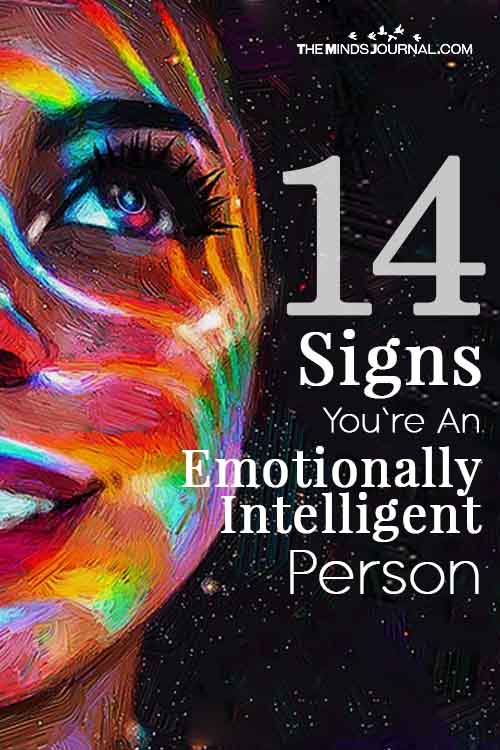
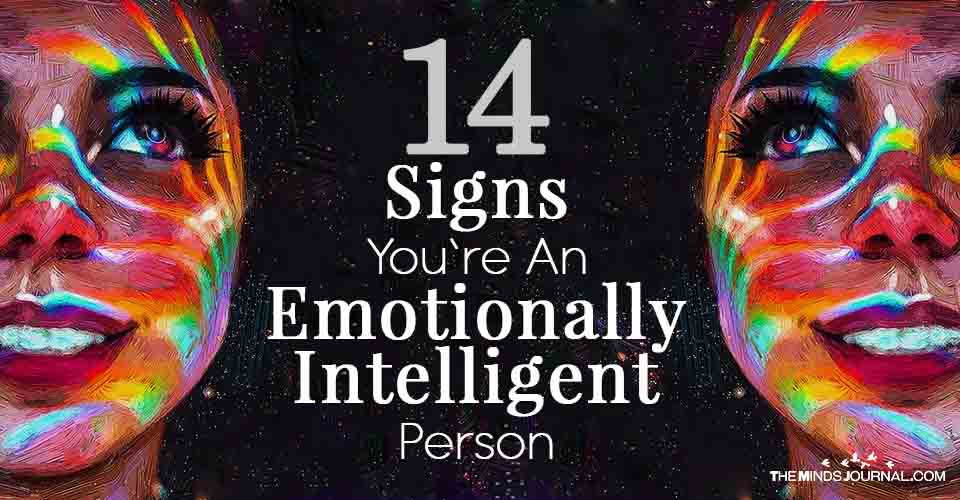



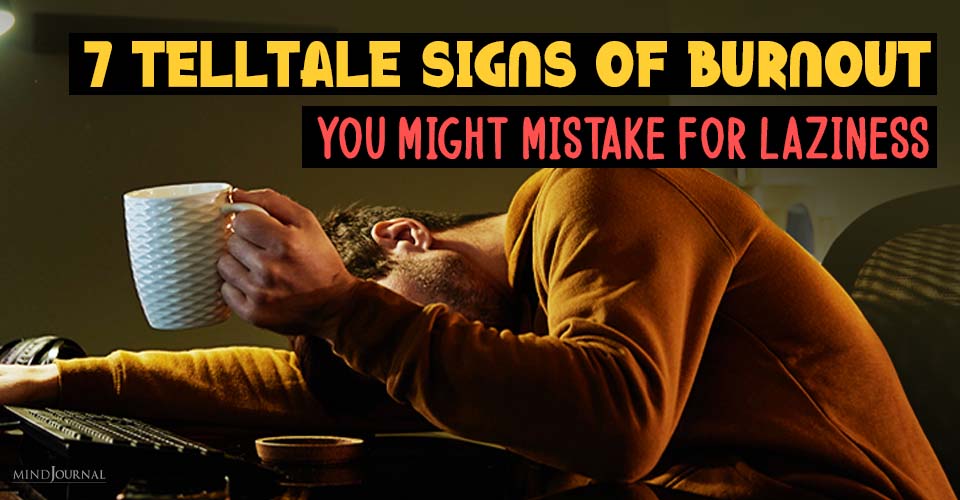


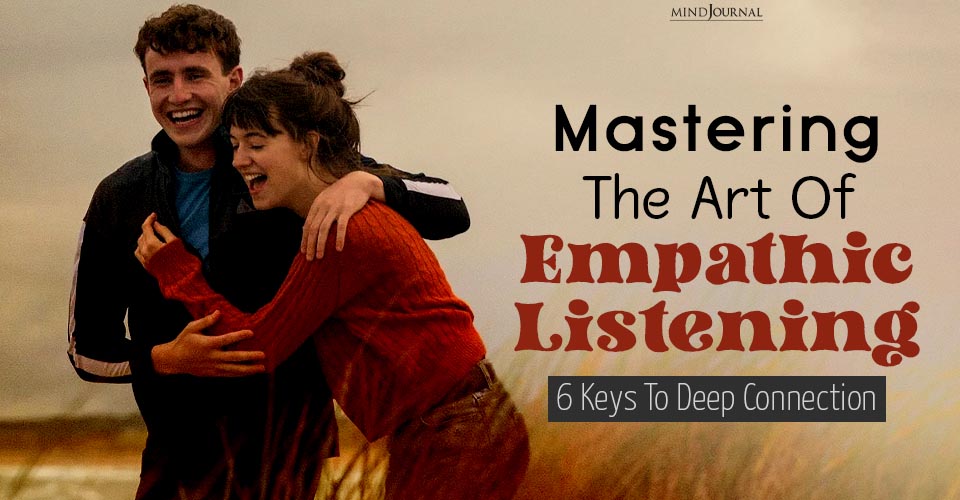






Leave a Reply
You must be logged in to post a comment.